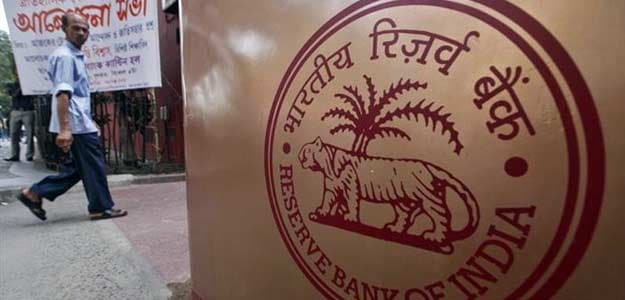
Friday, 21 November 2014 - 7:30am IST | Place: Mumbai | Agency: DNA
Bulging credit
Rs 72,632.37 crore --Total debt as of September 30, 2014
Rs 8,999.92 crore total operating profit over last four quarter
Rs 5,733.77 crore interest on the debt
Amid uproar over State Bank of India (SBI) extending $1 billion loan to Adani group's ambitious Australian mining project, the lender on Thursday clarified that the group will have to first repay and prepay loans of about Rs 5,000 crore to get the fresh credit.
The net fresh lending to the group after due diligence to develop the $7.5 billion Carmichael coal mine project in Queensland, Australia, will be only $200-400 million depending on the repayments, according to SBI.
Arundhati Bhattacharya, chairman of SBI, said as of now this is only a memorandum of understanding (MoU).
Arundhati Bhattacharya, chairman of SBI, said as of now this is only a memorandum of understanding (MoU).
"The company has to undertake repayments and prepayments. The loan itself is subject to techno-economic study, compliance with our credit policies and approval by the bank's board. The final decision will be based purely on commercial considerations. The project is good and will help in energy security as the quality of coal is very good. But Adanis have to repay a portion of the existing loan that we have extended to them. The net fresh lending will only be about $200 to $400 million," she told dna.
The coal mining project has a debt-equity ratio of 70:30.
"Unless the company brings in the equity, the bank will not give any funding. The Queensland government is also putting in some equity. Only after the equity part is ready, will the bank step in," said Bhattacharya.
The loan is being extended to Adani Mining, the Australian subsidiary of Adani Enterprises, for the mine, which has massive blocks of untapped coal reserves.
The loan is being extended to Adani Mining, the Australian subsidiary of Adani Enterprises, for the mine, which has massive blocks of untapped coal reserves.
Adani Enterprises has won support from the Australian state and an MoU from SBI for the coal mine project, despite a slump in coal prices to five-year lows.
Promoter Gautam Adani is also banking on Australia's big four banks along with export credit agencies of Korea and the US for a financial closure of his most ambitious project. Up to $1.5 billion is expected to be raised from South Korea's export credit agency as theAdani Group has awarded a $2-billion contract to Korean company Posco to construct the 388-km railway line to connect the Carmichael mine to Abbot Point.
Prime minister Narendra Modi met Queensland premier Campbell Newman in Brisbaneculminating in a commitment from the government there to take short-term, minority stakes in Adani Group's rail and port infrastructure projects.
Despite such assurances from SBI, the potentially huge lending has created an uproar in India and critics have accused the lender of favouritism. Experts are also worried at the huge debt that the Adani group has piled up.
According to analyst Vivek Kaul, as on September 30, 2014, the total debt of the group stood at Rs 72,632.37 crore. Total operating profit of the group over the last four quarters was at Rs 8,999.92 crore. The interest on its debt was Rs 5,733.77 crore.
"This means an interest coverage ratio of around 1.57. Interest coverage ratio is essentially the earnings before interest, taxes and exceptional items (or operating profit) of a company divided by its interest expense. It tells us whether the company is making enough money to pay the interest on its outstanding debt. The lower the interest coverage ratio the better the situation of the company. Also, the moment the interest coverage ratio starts hovering around 1.5, the ability of the company to keep paying interest on its debt becomes questionable," Kaul said in his blog.
Also, a matter of concern is the growing NPA of public sector banks. Deepak Shenoy who runs www.capitalmind.in said the net non-performing assets of the 12 banks that are a part of the 50-share Nifty Index rose by 13.31%, for three months ended September 30, 2014, in comparison to the same period last year.
The Carmichael project has been facing the ire of environmentalists in Australia too because of potential danger that the mine will cause to the Great Barrier Reef.
Meanwhile Congress party on Thursday questioned the decision of SBI to give $1 billion loan to Adani during PM's visit to Australia, according to PTI.
"What was the propriety of the SBI giving the loan to Adani, who was sitting next to the prime minister during the visit, at a time when some five foreign banks have denied credit to the group for the project?" party general secretary Ajay Maken said. He alleged that the PM appeared taking keen interest in "promoting" Adani in getting the loan worth Rs 6,200 crore during the visit in which the SBI chairman was also present.
"When five top foreign banks have already declined to fund Adani's project, what was the need and the sense in giving such a huge loan to him from the hard-earned money deposited by the common people? Did the SBI do the due diligence? If it did so why it is not declaring the MoU? On what conditions it was done? And what was the liability?" Maken said.
He also saw contradictions in the PM's thrust on coal mining in Australia and the coal minister Piyush Goyal's statement that India will be able to stop import of coal in the next two years.

